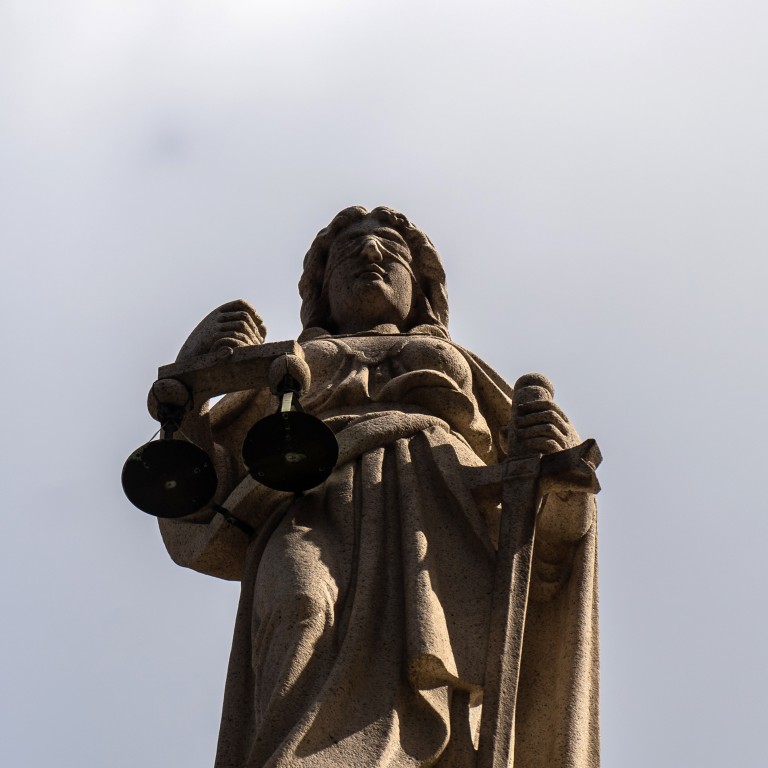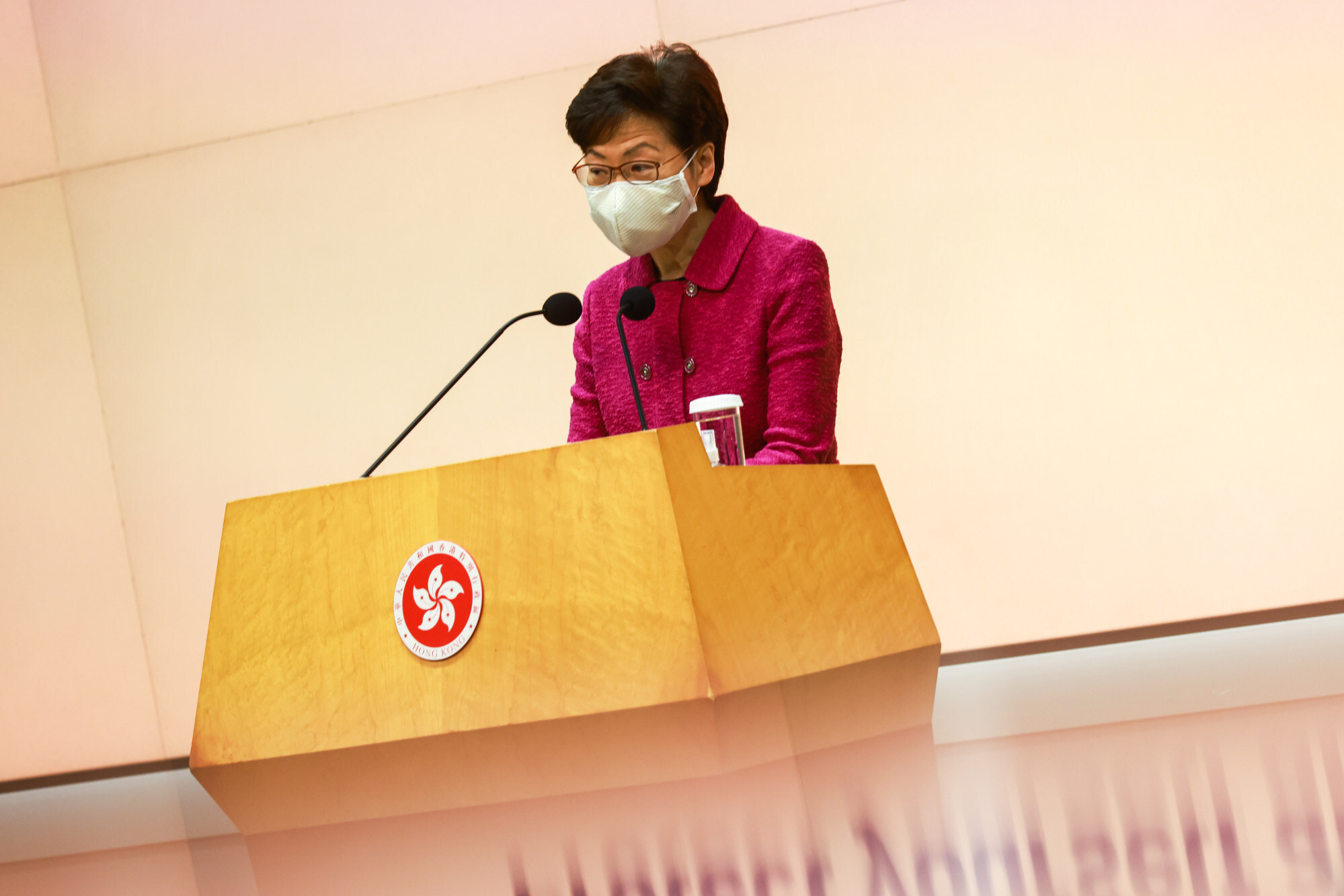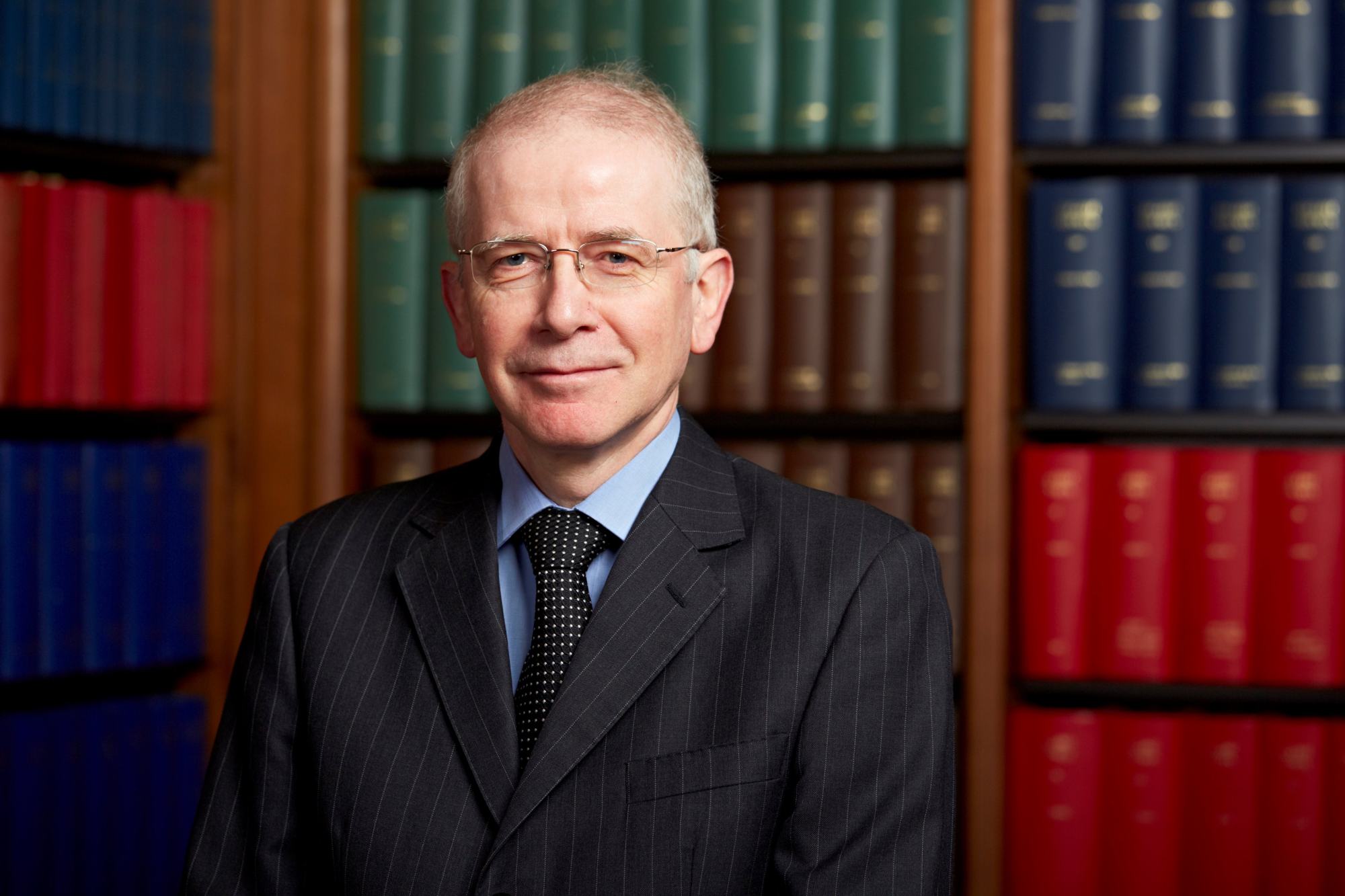
Hong Kong leader Carrie Lam says city’s judiciary is independent and stable in response to British judge’s resignation warning
- Lam says recent remarks from overseas judges serving Hong Kong’s top court show the judiciary is ‘firm and stable’, with its independence intact
- Senior British judge earlier revealed he would consider quitting city’s Court of Final Appeal if judicial independence was eroded
Hong Kong’s judicial system is independent and stable, the city leader has declared in response to a British judge saying he will consider quitting if he can no longer serve its top court “in good conscience”.
British Supreme Court president Robert Reed said last week he would weigh up resigning as a non-permanent judge of Hong Kong’s Court of Final Appeal should he conclude the judiciary’s independence had been compromised.
“There is the word ‘if’ in his speech ... This means that this is not today’s situation. As a respectable judge, he needs to express his own attitude,” Lam said.
Hong Kong courts free of government meddling, justice minister says
The chief executive added that Lord Jonathan Sumption, another non-permanent judge in the Court of Final Appeal, had defended the city’s judicial independence in a commentary in The Times, in which he made clear his intention to continue in the role.
“He [Sumption] told some politicians in his own country not to politicise the court and drag the judges into a political boycott,” she said.
“The statements made by both of the judges have proven that the legal and judicial system in Hong Kong is firm and stable,” Lam added.
Reed told the British parliament last Wednesday he would consider quitting the Court of Final Appeal “if there’s any undermining of the independence of the Hong Kong judiciary or if it’s expected to act contrary to rule of law, or it’s simply the situation in Hong Kong became one where we could no longer in good conscience serve there”.

Lam described Hong Kong as “gifted” on the basis the Basic Law stated that the city would enjoy the power of final adjudication once it was returned from British rule in 1997. The city’s mini-constitution also allowed the appointment of foreign judges, demonstrating its judicial independence, Lam added.
“We are very fortunate that we were able to invite and appoint top judges to serve the Court of Final Appeal in the past 20 years, this tradition is very important to us,” she said.
Hong Kong’s top court has been staffed by foreign judges since the city’s return to Chinese sovereignty. In contrast to the development of the civil law system in mainland China, Hong Kong inherited the English common law system used during the period of colonial rule. The city may invite judges from other common law jurisdictions to sit on its courts.

Secretary for Justice Teresa Cheng Yeuk-wah last Friday said neither the local nor central government had done anything so far to interfere with judicial independence in the city.
Kemal Bokhary, a local non-permanent judge who has served Hong Kong’s courts over three decades, told local media on Sunday that he still had confidence in the city’s judiciary and would continue to fulfil his role as best he could.
Last September, Justice James Spigelman, from Australia, stepped down from the Court of Final Appeal, citing concerns over the Beijing-imposed national security law, which targets acts of secession, subversion, terrorism and collusion with foreign forces.
British Queen’s Counsel David Perry in January quit as lead prosecutor in the trial of media tycoon Jimmy Lai Chee-ying and eight others over their alleged roles in an anti-government rally in 2019.
British Foreign Secretary Dominic Raab had accused Perry of handing Beijing a public relations victory by agreeing to take part in the trial, which is unrelated to the national security legislation.

